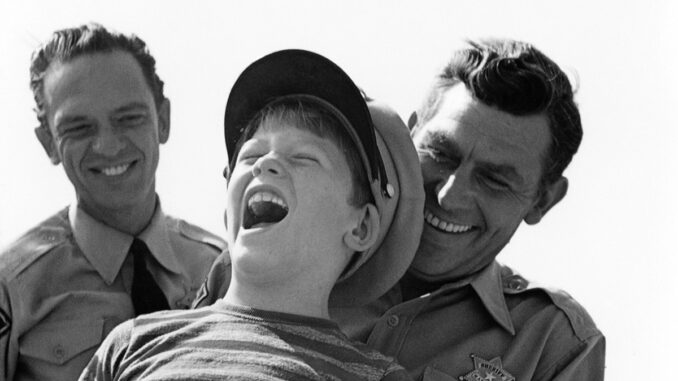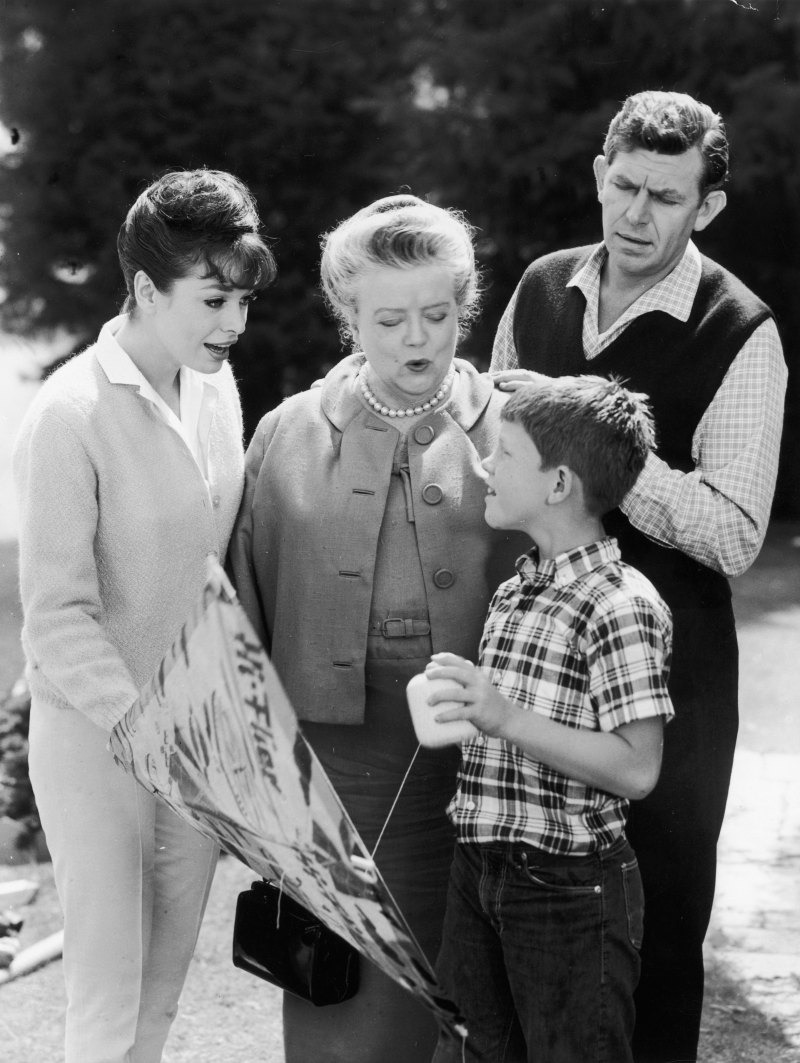
Introduction: More Than Just TV Magic
When you think of classic American television, The Andy Griffith Show instantly springs to mind. But behind every memorable show is a story beyond the screen. For Ron Howard, who played young Opie Taylor, working with Andy Griffith wasn’t just a job—it was a formative experience. So, what did Ron Howard really think of Andy Griffith? Let’s dive deep into their unique bond and the behind-the-scenes truths that shaped one of TV’s most beloved relationships.
Who Was Andy Griffith to Ron Howard?
A Father Figure on and off Screen
Ron Howard, who began acting at the tender age of six, often described Andy Griffith as a paternal presence. Griffith wasn’t just delivering lines—he was setting an example. Howard once said Griffith had a “light touch” when working with child actors, which made him feel comfortable and respected.
Mentorship Beyond Mayberry
Griffith subtly guided Howard in his early acting years. Though not a teacher in the traditional sense, Griffith showed Howard the ropes of the industry—through patience, professionalism, and presence. Howard credits Griffith with giving him space to grow while still providing gentle mentorship.
The Set of ‘The Andy Griffith Show’: A Masterclass in Character
Professionalism That Rubbed Off
Howard has often remarked how the tone of the set was set by Andy Griffith. There was laughter, yes, but also discipline. Griffith’s ability to balance warmth with focus made a lasting impression on Howard’s own directorial style years later.
Learning by Watching
Griffith had a way of controlling the room without ever seeming controlling. This taught Howard one of the most valuable lessons in leadership—how to earn respect without demanding it.
Did They Always Get Along?
Not Always Eye to Eye—And That’s Okay
While their relationship was deeply respectful, it wasn’t without its human complexities. Griffith, known for being a perfectionist, occasionally clashed with directors or producers. Howard observed this dynamic early on, noting that while Griffith was warm, he also had a serious side that didn’t suffer fools.
No On-Set Tension Between Them
Despite any moments of tension with others, Howard and Griffith never had personal issues. Their chemistry was real. It wasn’t just acting—it was trust.
What Did Ron Howard Say in Later Interviews?
Deep Appreciation and Gratitude
In several interviews over the years, including appearances on Larry King Live and NPR, Howard has expressed nothing but gratitude toward Griffith. “He was my partner in many ways,” Howard once said, reflecting on how Griffith helped shape his understanding of both performance and humanity.
The Legacy Lives On
Howard continues to carry the lessons from Griffith into his own projects. From A Beautiful Mind to Apollo 13, you can see the influence of Griffith’s thoughtful, measured style.

Behind-the-Scenes Bonds That Lasted a Lifetime
Staying in Touch After the Show
Even after The Andy Griffith Show wrapped, Howard and Griffith kept in contact. While not frequent, their exchanges were meaningful. They shared a mutual respect that extended far beyond television fame.
A Touching Reunion on ‘Return to Mayberry’
In 1986, the cast reunited for Return to Mayberry. Howard didn’t act in the film, but he made a special appearance—highlighting the respect he still held for the show and its star.
What Made Andy Griffith So Influential to Young Ron Howard?
A Gentle Giant
Howard frequently referred to Griffith’s “understated wisdom.” He wasn’t the loudest man in the room, but people listened. That quiet power left a deep mark on young Ron.
A Blend of Humor and Heart
Griffith taught Howard that comedy worked best when it had heart. That’s something Howard would later inject into his films, whether directing comedies or dramas.
How Did Ron Howard View Andy Griffith as an Actor?
A Master of Subtlety
Howard admired Griffith’s ability to make even the quietest moments feel powerful. “He didn’t have to say much to say a lot,” Howard once explained in an interview.
Respect for Griffith’s Range
Though known mostly for his comedic and down-home charm, Griffith had dramatic chops too—something Howard greatly respected. Episodes like “Opie the Birdman” showed Griffith’s dramatic range, which Howard later called “emotionally grounding.”
Griffith’s Humor: A Teaching Tool
Comedy with Depth
Andy’s jokes weren’t just punchlines—they had warmth, character, and timing. Howard absorbed this comedic rhythm like a sponge, applying it later to his own writing and direction.
How Humor Built Trust
Griffith used humor to create ease on set, especially for a young child actor like Ron. Laughter was part of the learning environment.
The Final Goodbye: Griffith’s Death in 2012
Howard’s Emotional Tribute
When Griffith passed away in 2012, Ron Howard was among the first to speak publicly. He released a heartfelt statement: “Andy was my mentor and a great friend. His love of simplicity and storytelling shaped my career.”
More Than a Co-Star
Howard didn’t just lose a former co-star—he lost a foundational figure in his life.
The Enduring Influence of Andy Griffith on Ron Howard’s Directing Style
Character Over Flash
Griffith’s emphasis on strong, believable characters inspired Howard’s own work. You see it in Parenthood, The Paper, and Rush—films that focus more on humanity than spectacle.
Storytelling with Integrity
Griffith’s honesty in performance taught Howard to never take shortcuts with storytelling. Every scene had to mean something. That’s a philosophy Howard still holds today.
What Can We Learn from Their Relationship?
Mentorship Can Be Silent but Powerful
Andy didn’t give formal acting lessons—but his actions spoke volumes. This kind of mentorship doesn’t happen every day in Hollywood.
Respect Outlives Fame
While the spotlight has moved on from Mayberry, the bond between Ron Howard and Andy Griffith remains one of the most authentic in television history.
Conclusion: A Legacy Carried in the Heart
Ron Howard didn’t just admire Andy Griffith—he internalized him. Griffith’s lessons still echo in Howard’s career and values. Their on-screen relationship as father and son blossomed into a lifelong admiration built on mutual respect, trust, and a shared love for storytelling. It’s clear now: behind the scenes of that wholesome, black-and-white sitcom was a real-life connection that helped shape one of Hollywood’s most respected directors.
Frequently Asked Questions
1. Did Ron Howard and Andy Griffith stay in touch after the show ended?
Yes, while they weren’t constantly in contact, they shared mutual respect and stayed in touch over the years—especially during key milestones and reunions.
2. How did Andy Griffith influence Ron Howard’s directing style?
Griffith emphasized character-driven storytelling, simplicity, and emotional honesty—elements that clearly influenced Howard’s approach to filmmaking.
3. Did Ron Howard ever speak negatively about Andy Griffith?
No. In public interviews, Howard has only expressed gratitude and deep admiration for Griffith, calling him a mentor and a friend.
4. Was Andy Griffith difficult to work with behind the scenes?
While Griffith had a perfectionist streak and took his work seriously, most co-stars—including Howard—found him warm, generous, and professional.
5. What’s Ron Howard’s most memorable lesson from Andy Griffith?
Howard has mentioned that watching Griffith balance humor with sincerity taught him the power of subtlety and emotional truth in performance and storytelling.